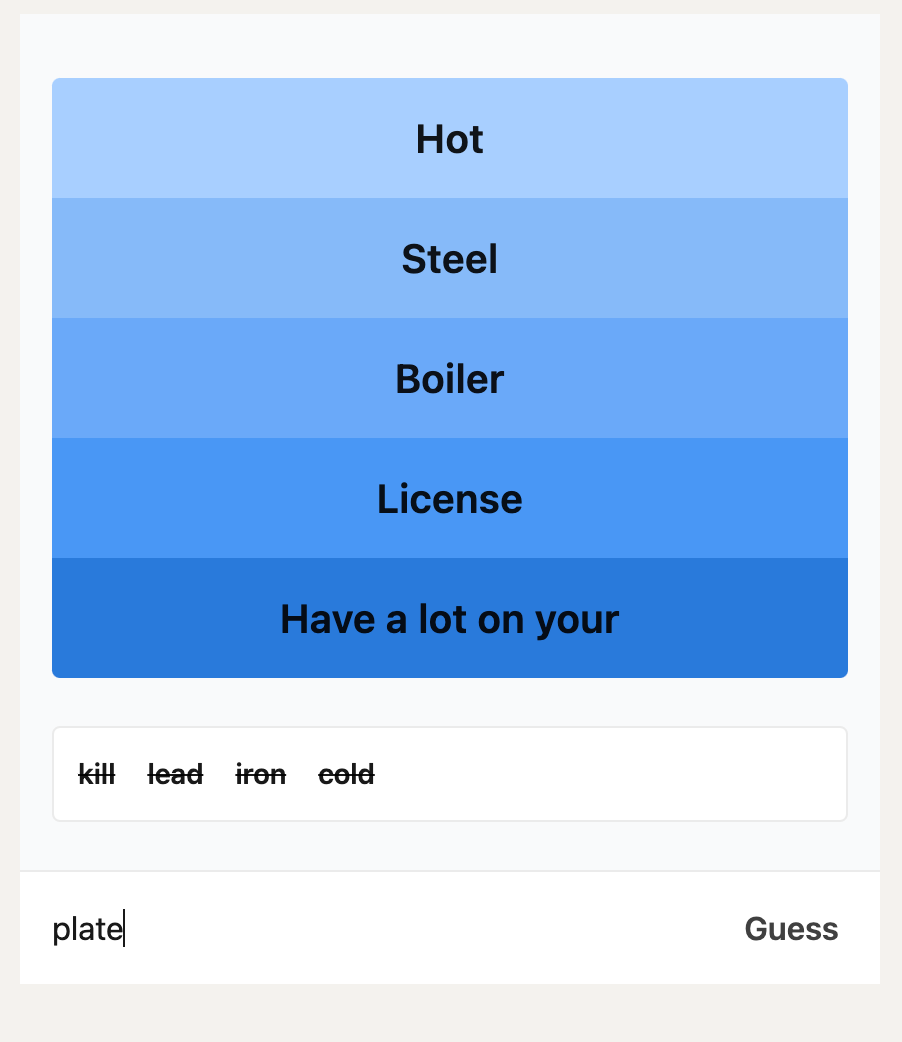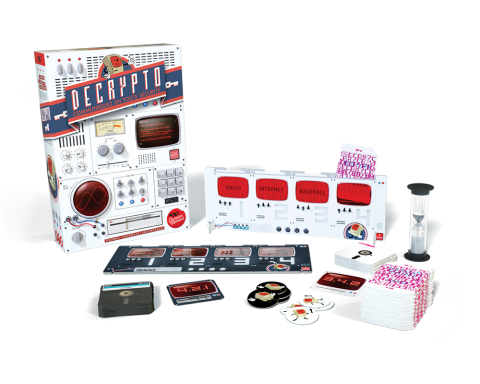The Mid-Kids: Ranking the Middle of the Pack Daily Games (15-6)
Dispensing with the pretense and getting on with my opinions about what's good and interesting in our Daily Gaming landscape
Many are saying that LinkedIn Games, are in fact good. And with that, the daily game craze is well and truly here.
The NYT Games section is also testing out a new phrase guessing game called Zorse, which as of the last reporting is only available in Canada.
15. Pinpoint (LinkedIn Games)
I admire the sheer audacity of Pinpoint. Heck, it’s barely a game. You have five guesses based on a series of words given to you. It’s kind of like a triangulation game because you build a bigger picture of what it could mean as time goes on. But it’s alos not, because sometimes getting more information isn’t helpful. But, it also doesn’t feel like I’m trying to root around unhelpfully in someone else’s psyche for the answer. It hits the sweet spot of the purpose of Daily Games. Starting your day off with a win.
Ironically, it’s also the game where you’re most likely to have a streak end poorly because you can’t figure out how the concepts are supposed to connect.
You Might Also Like: Decrypto
14. Wordbind (Puzzmo)
Wordbind might be my favorite concept for a word game. Like Pinpoint it dispenses with a lot of the pretense around word games and digs into the heart: trying to make new words with a subset of letters available. It helps that it has catchy UI touches, like the blue and red to showcase missing or extra letter goals. The first time I figured out you could repeat the same letter twice in a row was a huge unlock as well.
You Might Also Like: Spelling Bee (NYT)
13. Really Bad Chess (Puzzmo)
I, for the most part, do not understand the power of chess. Even after reading All the Wrong Moves by Sasha Chapin, I can’t say I find myself enthralled by it’s beauty or its grace. It mostly seems like an exercise in your ability to think multiple turns in advance, calculate probabilities and then execute. Really Bad Chess is the first game that got me to see that chess might actually be fun.
So my assumption is that the people who play Really Bad Chess either adore or hate chess. The idea of the game is that instead of playing “normal” chess, you play randomized chess where the pieces and starting places are out of whack. The AI has the same skill level every day, but the game gets easier or harder based on the relative strengths of each of your starting boards. It probably belongs closer in the rankings to the Original NYT Crossword for its complexity and length but I find myself so charmed by its ridiculousness and the excellence of the UI. (The Undo Button doesn’t hurt either)
I also like how the game still manages to feel like a pen and paper puzzle even though it’s the least puzzley of any options available.
You Might Also Enjoy: Chess.com
12. Sudoku (NYT Games)
Sudoku continues to be an incredibly solid game, probably the best of the number games available, and this is actually the only Sudoku variant on any of the major platforms, so it wins by default.
I personally prefer Good Sudoku because I think it has a more helpful and zingy interface, but it was not eligible for consideration.
You Might Also Like: One Up or Sumaddle
11. Typeshift (Puzzmo)
Typeshift feels like lockpicking with words. It can be anywhere between slow and deliberative or fast and hectic. I’ve even heard some players try to map out all of the possible answers and then figure out how to execute it in the fewest number of keystrokes.
It’s a more brain burning game than the others because it’s easy to get stuck on a last word or two, but it also is more fun and moves along at a faster clip than some of the others.
You Might Also Like: Letter Boxed (NYT Games)
10. Strands (NYT Games)
Even though Strands seems awfully close to SpellTower, I actually think I prefer this game for the theming and the direction. The aesthetic vibe fits with the NYT thing it’s trying to get going, I really appreciate that there’s a theme it’s aiming at, and you can play it as a word finder to try to harvest hints which will help move you along to the words that you’re struggling with.
You Might Also Like: SpellTower (if you’re ready for a harder challenge)
9. CrossClimb (LinkedIn Games)
CrossClimb is a smart game that you feel smart playing. It’s based around the idea of those word ladders, where you change one letter at a time to create a series of words. However, the twist is that the word order has been randomized, so you’re trying to figure out the order as well as find the words. It provides just enough of a twist to be a fun challenge to start your day. Once you line the first 5 words up correctly, you get the two at the end, which on good days can feel really quite sharp.
For a Bigger Adventure Try: Paperback or Hardback (these Tim Fowers games are available both as a apps or physical editions, for a “gamier” challenge)
8. The Mini (NYT Games)
The Mini is sharp, easy to play, and features all of the benefits that small crossword puzzles give you. But the Timesiness of it all shines here, because the clues feel sharp and fun without being eye-rolly.
You Might Also Like: Knotwords
7. Tango (LinkedIn Games)
The newest kid on the block, and partially what inspired this article, Tango is the “Wavefunction Collapse” algorithm distilled to its barest form. The basic concept of what is a very mathy term, is the idea that with minimal information you can “collapse” an unknown space (in this case a 6x6 grid) into a space full of the appropriate characters (in this case Moons and Suns).
The challenge with Sudoku is that it often requires multiple passes to tune information down slowly over time until you can get one right answer to start building more clues off of, Tango seems mostly about finding the right starting point and then quickly (and enjoyable) filling in the rest of the grid. It has snappy animations.
You Might Also Like: Cracking the Cryptic
6. Queens (LinkedIn Games)
Our fourth and final LinkedIn Game! It’s no mistake all of the LinkedIn Games happen to show up on this middle list. They are all incredibly solid but don’t quite have the oomph to crack the Top 5.
Queens is fun! The basic idea is that you have to find the right spot to place crowns such that every row, column, and outlined shape has one (and only one) crown in it. It is not a game you can simply use process of elimination to get the answers. You have to find ways to eliminate chunks of the board. It’s space-mathy in that sort of way.
You Might Also Like: Star Go (Basically a collection of Queens)
That’s all for this week! Thanks for reading and let me know what you think in the comments. Come back next week when I reveal my top 5.












